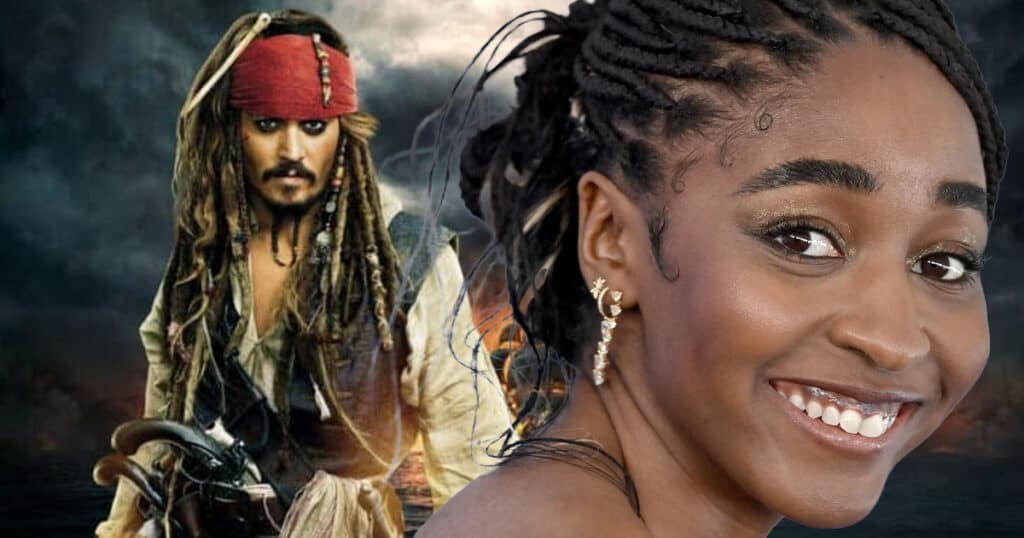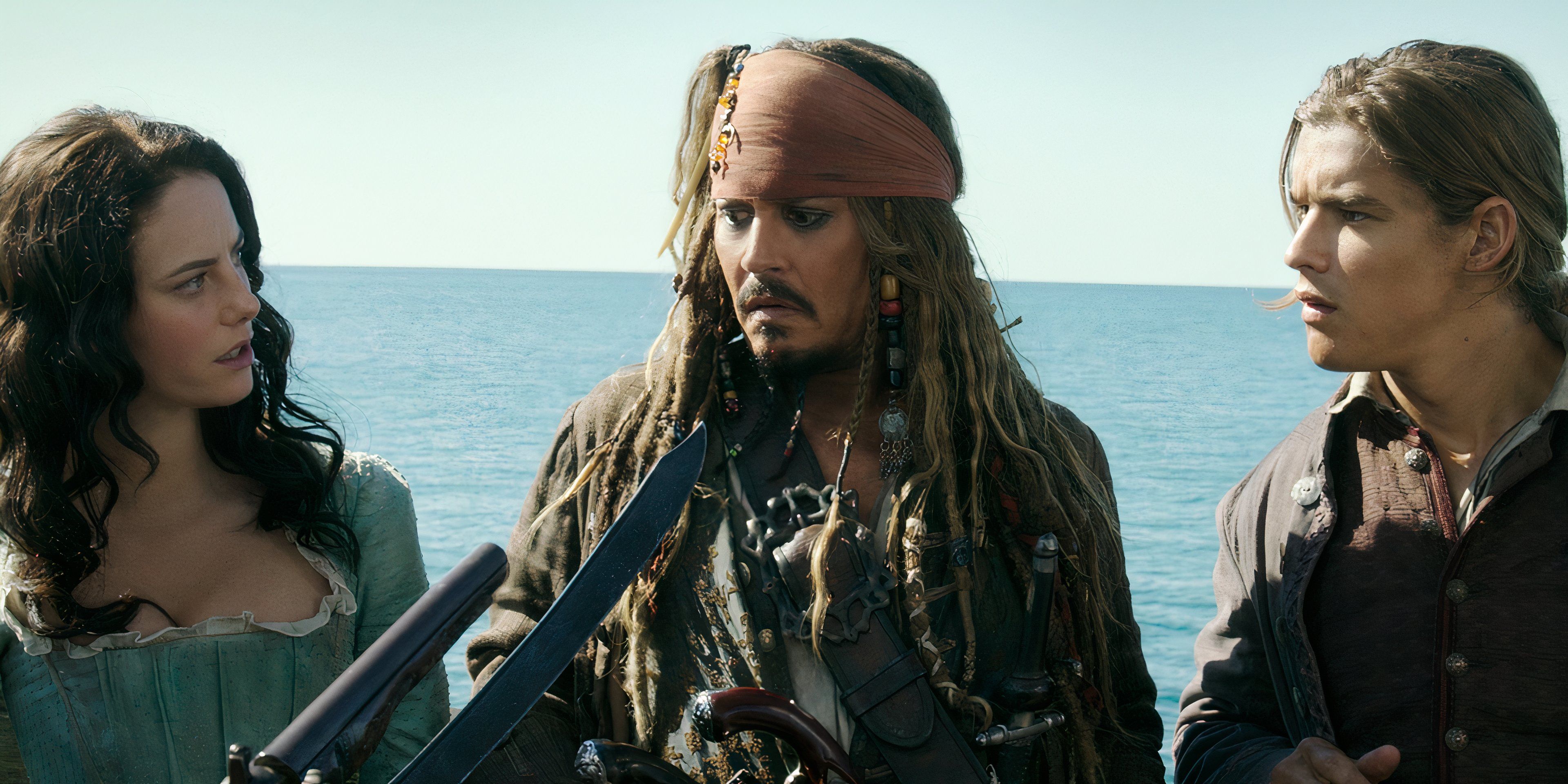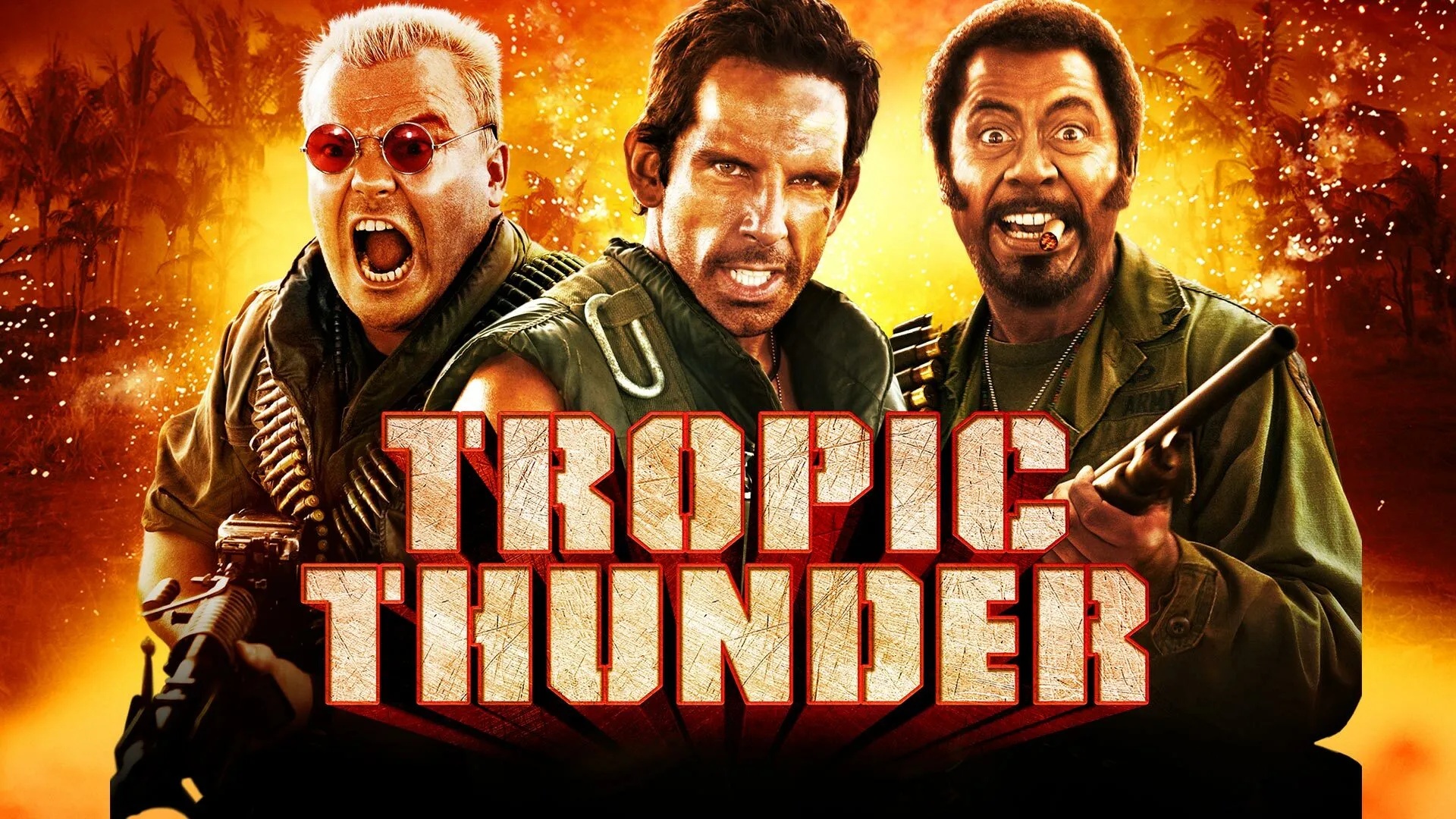Pirates of the Caribbean: At World's End (2007): A Swashbuckling Epic of Betrayal, Loyalty, and Legend
Pirates of the Caribbean: At World's End, released in 2007, is the third film in Disney’s blockbuster franchise, directed by Gore Verbinski and produced by Jerry Bruckheimer. Picking up immediately after the cliffhanger ending of Dead Man’s Chest (2006), the film delivers an ambitious, visually spectacular adventure that brings together pirate legends, mystical forces, and the ultimate battle for the seas. With a sprawling narrative and darker tone, At World's End marks a turning point in the saga—one of betrayal, sacrifice, and unexpected heroism.
The story begins with the rescue mission to retrieve Captain Jack Sparrow (Johnny Depp) from Davy Jones’ Locker, where he was dragged at the end of the previous film. Sparrow, trapped in a surreal and desolate dimension, must be freed by Will Turner (Orlando Bloom), Elizabeth Swann (Keira Knightley), and Captain Barbossa (Geoffrey Rush), who has been resurrected through voodoo magic by the mysterious Tia Dalma. Their goal is not only to save Jack, but to unite the nine Pirate Lords of the Brethren Court to stand against Lord Cutler Beckett, who has taken control of Davy Jones and the Flying Dutchman, waging a brutal campaign to exterminate piracy once and for all.

The film spans treacherous waters, shifting allegiances, and epic naval confrontations. Thematically, it explores freedom versus control, love versus duty, and mortality versus legend. Will and Elizabeth’s relationship is tested to its limits, while Jack Sparrow wrestles with hallucinations and existential dread. Meanwhile, Tia Dalma is revealed to be Calypso, a sea goddess betrayed by the pirates who once loved and feared her.
Visually, At World's End is a stunning achievement. From the eerie deserts of Davy Jones’ Locker to the jaw-dropping maelstrom battle between the Black Pearl and the Flying Dutchman, the film delivers some of the most impressive set pieces in the franchise. Hans Zimmer’s score amplifies the emotional beats, particularly the sweeping "One Day" and "Drink Up Me Hearties," which became fan favorites.

Johnny Depp continues to mesmerize as Jack Sparrow, playing him with trademark eccentricity and newfound vulnerability. Geoffrey Rush brings a grand theatricality to Barbossa, while Keira Knightley’s Elizabeth Swann evolves from noblewoman to commanding Pirate King—a standout arc in the trilogy. Orlando Bloom's Will Turner matures into a selfless hero, culminating in a tragic yet poetic twist as he takes Davy Jones’ place aboard the Flying Dutchman, bound to the sea for eternity.
While critics were divided on the film’s complexity and nearly three-hour runtime, At World's End was a commercial success, grossing nearly $960 million worldwide. Some viewers found the plot convoluted, but many praised its bold ambition and emotional payoffs. It was nominated for two Academy Awards (Best Makeup and Best Visual Effects), solidifying its status as a technical triumph.

In conclusion, Pirates of the Caribbean: At World's End is a dark, operatic, and visually masterful culmination of the original trilogy. It deepens the mythology of the series and provides satisfying—if bittersweet—resolutions to its beloved characters, proving that even in chaos, pirates can carve out their own destiny.

-1752128555-q80.webp)
![[𝙍𝙀𝘾]⁴: 𝘼𝙋𝙊𝘾𝘼𝙇𝙔𝙋𝙎𝙀 [𝙍𝙀𝘾]⁴: 𝘼𝙋𝙊𝘾𝘼𝙇𝙔𝙋𝙎𝙀](https://i-1.cybergalleria.com/uploads/images/tinymce-uploads/20250708/maxresdefault-(10)-1751966508-q80.webp)
